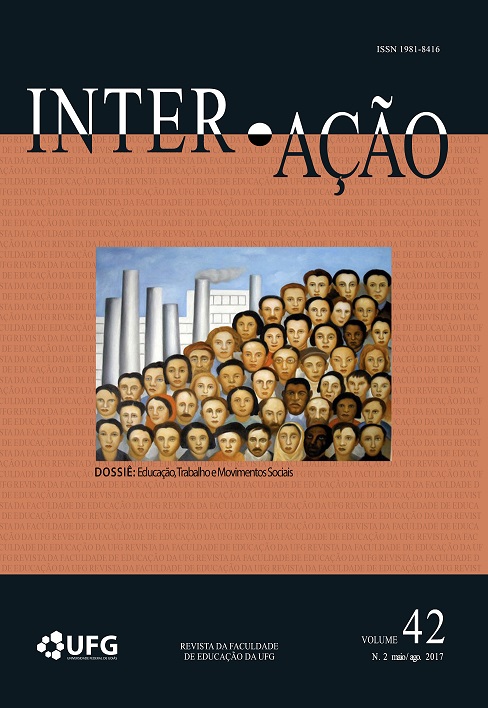BUSCANDO E RECONHECENDO DIREITOS: A PRODUÇÃO DE CONHECIMENTO SOBRE EDUCAÇÃO ESCOLAR QUILOMBOLA
DOI:
https://doi.org/10.5216/ia.v42i2.46114Keywords:
Educação, Quilombolas, Movimento Negro, Educação Profissional.Abstract
Este artigo faz parte da pesquisa em andamento intitulada “A Educação Profissional e a permanência de estudantes quilombolas no IFRN: uma análise para além da Lei nº 12.711/2012”, requisito para o Mestrado do Programa de Pós-graduação em Educação Profissional do IFRN. O objetivo é realizar o levantamento da produção acadêmica acerca da educação escolar voltada para os jovens quilombolas no Brasil. A metodologia utilizada foi a pesquisa no site do Portal de Periódicos da CAPES com os descritores “educação quilombola” e “estudantes quilombolas” e “educação escolar quilombola”. Resgatamos os conceitos de raça, etnia e quilombo, além de uma breve discussão sobre a história da educação dos negros no país. À guisa de conclusão, destacamos o papel do Movimento Negro na busca da afirmação de direitos na dimensão educacional.Downloads
Published
Versions
- 2026-02-03 (2)
- 2017-12-07 (1)
How to Cite
Issue
Section
License
Copyright (c) 2017 Inter Ação

This work is licensed under a Creative Commons Attribution-NonCommercial 4.0 International License.
Inter-Ação uses the Creative Commons Attribution 4.0 License for Open Access Journals (Open Archives Initiative - OAI) as the basis for the transfer of rights. Open access means making documents available on the Internet free of charge, so that users can read, download, copy, distribute, print, search, or link to the full text of documents, process them for indexing, use them as input data for software programs, or use them for any other lawful purpose, without financial, legal, or technical barriers.
Authors publishing in this journal agree to the following conditions:
1) Authors retain copyright and grant the journal the right of first publication, with the work simultaneously licensed under the Creative Commons Attribution License, which permits redistribution of the work with attribution and first publication in this journal.
2) Authors are permitted to enter into additional, separate agreements for non-exclusive distribution of the version of the work published in this journal (e.g., for publication in an institutional repository or as a book chapter), with attribution and first publication in this journal.
3) Authors are permitted and encouraged to publish and distribute their work online (e.g. in institutional repositories or on their home page) at any time before or during the editorial process, as this may generate productive changes as well as increase the impact and citation of the published work.















